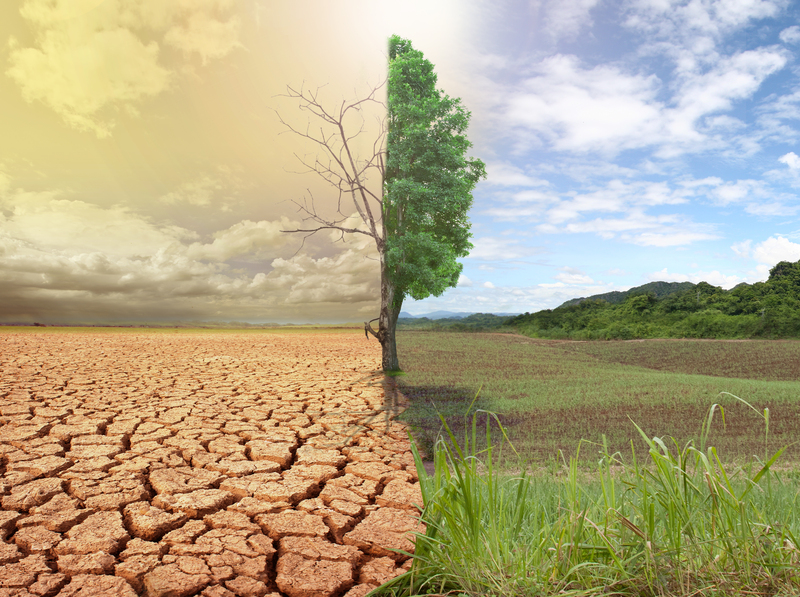Conscious PPE Waste Disposal for a Greener Tomorrow
The rise of personal protective equipment (PPE) usage has brought both safety and sustainability to the forefront. While helping us stay protected, improper disposal threatens our environment. Explore the vital importance of conscious PPE waste disposal and discover responsible strategies for a cleaner, greener future.
Understanding PPE Waste: A Modern Environmental Challenge
As personal protective equipment--such as masks, gloves, and face shields--became commonplace during global health crises, the world witnessed an unprecedented surge in single-use items. According to recent studies, billions of masks and gloves now enter our landfills and oceans every month.
- PPE waste is primarily non-biodegradable.
- Majority is made from plastics such as polypropylene and nitrile.
- Improper disposal leads to environmental pollution and wildlife hazards.
The environmental implications are profound: microplastic pollution, harm to marine and terrestrial animals, and increased carbon footprint from manufacturing and transport processes. Conscious PPE waste handling, therefore, isn't just about staying safe--it's about securing the planet for future generations.
What Does 'Conscious PPE Waste Disposal' Mean?
Conscious PPE waste disposal refers to deliberate, responsible handling and processing of personal protective equipment after its intended use. This involves awareness of the materials involved, selecting environmentally-friendly disposal methods, and actively seeking alternatives that minimize ecological impacts.
- Segregating PPE waste from regular trash to avoid contamination.
- Disposing of items in designated receptacles at public and private facilities.
- Educating communities about the importance of responsible PPE management.

Why Does Conscious Management of PPE Waste Matter?
Unregulated disposal of PPE has immediate and long-lasting consequences for the environment and public health:
- Marine life endangerment: Discarded masks and gloves often end up in oceans, causing animals to ingest or become entangled in them.
- Microplastic contamination: Most PPE items break down into tiny plastic particles, affecting not only animals but, through the food chain, humans as well.
- Landfill overload: Traditional landfills are ill-equipped to properly handle the additional burden of PPE waste.
- Disease transmission: Incorrect disposal poses hygiene risks by potentially spreading pathogens.
Choosing eco-sensitive PPE disposal methods protects ecosystems, reduces landfill waste, and demonstrates a commitment to sustainability. This approach is essential for fostering a resilient and healthy planet.
Types of PPE and Their Environmental Footprints
To manage PPE waste responsibly, it's crucial to understand the range of PPE items used and their environmental impact:
- Masks: The majority are made from polypropylene, a plastic that doesn't biodegrade easily.
- Gloves: Typically latex, nitrile, or vinyl--materials with limited recycling value.
- Face shields and goggles: Made from hard plastics; sometimes reusable but often disposed of improperly.
- Protective gowns and shoe covers: Often single-use, made of synthetic fibers.
Each item presents unique challenges when it comes to eco-friendly disposal. Recognizing these differences is the first step toward more sustainable choices.
Eco-Friendly PPE Waste Disposal Methods
For a greener tomorrow, adopting best practices for conscious PPE disposal is paramount. Here are effective strategies for reducing environmental damage:
Segregating and Sanitizing PPE Waste
- Segregate PPE waste: Dispose of used items in separate, clearly marked bins. This prevents contamination of recyclables and helps with safe handling by waste workers.
- Sanitize before disposal: Where possible, disinfect used PPE to minimize health hazards to waste handlers and others.
Choosing the Right Disposal Routes
- General public:
- Dispose of single-use PPE in dedicated waste bins, not recycling bins.
- Never discard PPE in public spaces or nature.
- Healthcare and workplaces:
- Follow strict biomedical waste management protocols.
- Partner with licensed medical waste disposal companies.
Recycling and Upcycling PPE Waste
PPE recycling is still in its infancy due to contamination concerns and material limitations. However, innovation is blossoming:
- Specialized recycling programs: Some companies now collect and process large volumes of used masks and gloves, turning them into construction materials or fuel.
- Repurposing for community use: In some regions, PPE is sterilized and repurposed as plastic lumber or bricks for infrastructure projects.
Tip: Before tossing PPE into the trash, look for local drop-off centers or collection points that support specialized recycling or upcycling programs.
Exploring Biodegradable and Reusable PPE Options
One of the most effective ways to limit waste is to use biodegradable or reusable protective equipment:
- Reusable cloth masks: These can be washed and worn multiple times, reducing dependence on single-use items.
- Eco-friendly PPE materials: Innovative companies now produce masks and gowns using plant-based or compostable materials.
- Durable, sterilizable gear: PPE designed for repeated sterilization lessens the overall waste footprint.
Corporate and Government Responsibilities
While individual efforts are essential, institutions play a massive role in responsible PPE waste disposal:
Best Practices for Workplaces and Healthcare Settings
- Develop comprehensive PPE waste management protocols.
- Train staff on correct disposal and segregation procedures.
- Invest in reusable PPE whenever feasible.
- Engage with certified waste management services for safe treatment and disposal of contaminated items.
- Monitor and report PPE waste volumes to identify areas for improvement.
Policy-Making and Regulation
Governments worldwide are introducing policies aimed at curbing PPE pollution:
- Enforcing the use of color-coded bins for hazardous vs. non-hazardous PPE waste.
- Setting up community education campaigns about proper PPE waste handling.
- Funding public-private partnerships for the development of PPE recycling infrastructure.
Effective policy complements grassroot action, creating the framework needed for large-scale change toward a greener tomorrow.
Community Involvement: Building a Culture of Responsible PPE Disposal
The fight for environmentally-conscious PPE waste disposal is strongest when individuals, communities, and institutions work collectively. Here's how you can take action:
- Community Clean-Ups: Organize neighborhood events to pick up improperly discarded masks and gloves, raising awareness in the process.
- Educational Initiatives: Share informational materials on the dangers of improper PPE disposal and best practices via social media, schools, and local organizations.
- Workshops and Training: Host sessions on segregating, cleaning, and disposing of PPE responsibly.
- Advocacy: Support policies and initiatives that demand accountability from PPE manufacturers and waste management providers.
Overcoming Barriers to Sustainable PPE Waste Management
Despite growing awareness, several challenges persist in implementing eco-friendly PPE disposal solutions:
- Limited infrastructure: Many regions lack the facilities needed for specialized handling or recycling of PPE waste.
- Poor public awareness: Misunderstandings about what happens to discarded PPE often leads to careless disposal.
- Economic pressures: Cheaper single-use products remain more accessible than sustainable alternatives.
- Contamination risks: Many recyclers refuse to accept PPE waste due to high risk for disease transmission.
Collaboration between scientists, governments, the private sector, and everyday citizens is essential in addressing these barriers for a greener tomorrow.
Innovations Shaping the Future of PPE Waste Disposal
- Advanced sterilization technologies allow for the safe recycling of previously contaminated materials.
- Biodegradable PPE development is accelerating, with promising prototypes entering the market.
- Circular economy models encourage manufacturers to design PPE for easy disassembly and reuse.
- AI-driven waste sorting enhances the efficiency of separating PPE from other waste streams.

Individual Steps for Conscious PPE Waste Disposal
Your daily actions count. Incorporate these responsible PPE disposal habits into your routine:
- Carry a personal waste bag for used masks and gloves when out in public to avoid littering.
- Choose reusable PPE options whenever possible and care for them correctly.
- Wash hands thoroughly after handling used PPE, even before disposal, to protect yourself and others.
- Educate family and friends about the environmental impacts of PPE waste.
- Encourage workplaces, schools, and communities to introduce dedicated PPE waste bins.
Towards a Greener Future: The Benefits of Conscious PPE Waste Management
The positive impacts of conscious PPE waste disposal are far-reaching:
- Cleaner environments: Streets, parks, and nature reserves remain free of hazardous plastic waste.
- Protection of wildlife: Fewer animals suffer injury or death due to entanglement or ingestion of PPE.
- Healthier communities: Reduced risk of contamination and disease spread.
- Resource conservation: Recycling and reuse cut down on the extraction and processing of virgin materials.
- Inspiration for sustainability: Responsible PPE habits foster broader environmental stewardship in society.
The Road Ahead: Committing to Conscious PPE Disposal
Transitioning to greener PPE waste management isn't an overnight fix. It demands systemic change, consistent individual action, and creative innovation. By integrating conscious PPE waste disposal practices into our everyday routines and business operations, we can dramatically reduce our environmental footprint and help build a cleaner, healthier planet.
Let's join hands for a sustainable future. Every mask properly disposed of, every glove recycled, and every person educated brings us closer to a greener tomorrow. Start your journey toward eco-conscious PPE waste disposal today and inspire others to do the same!
